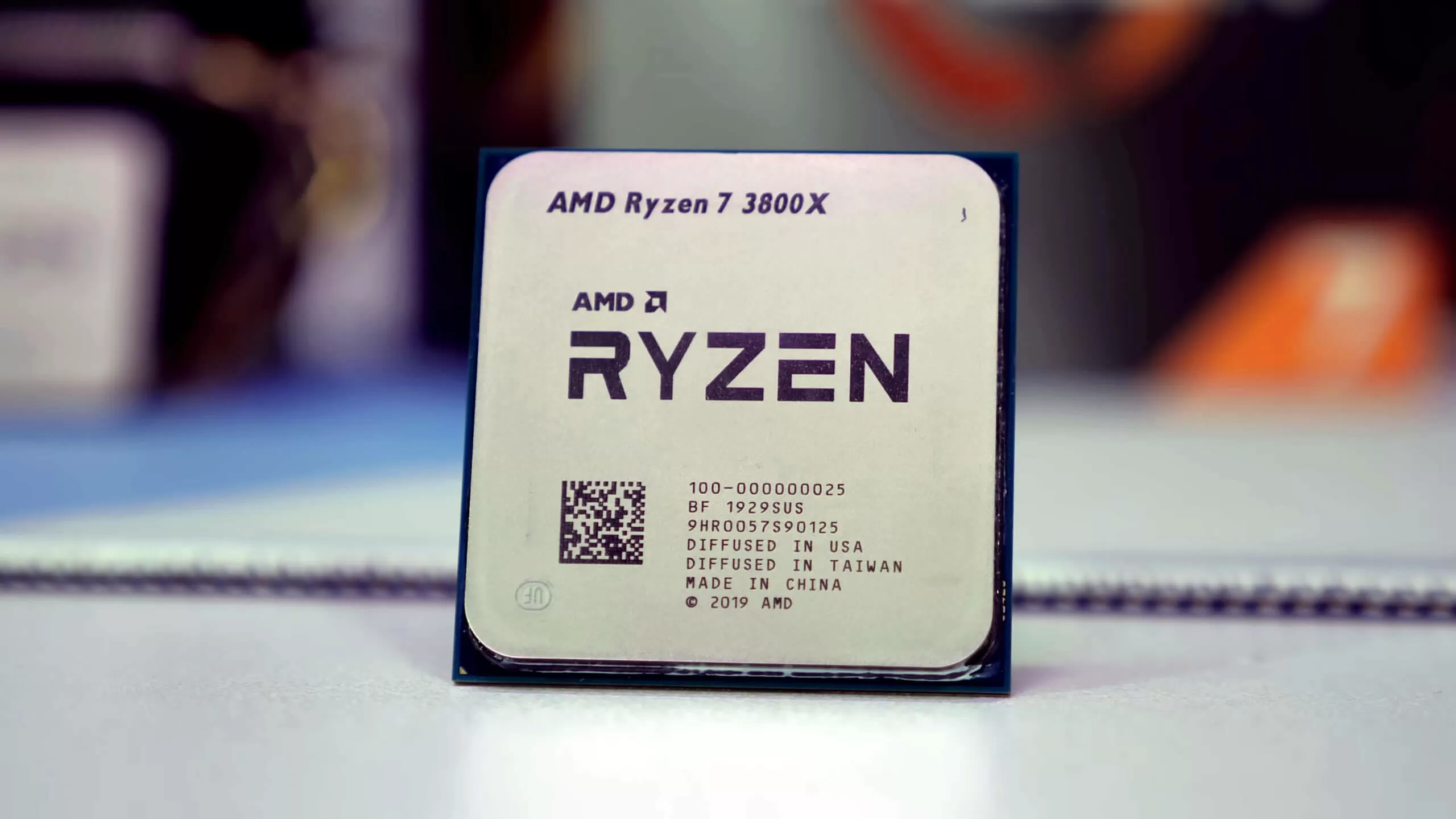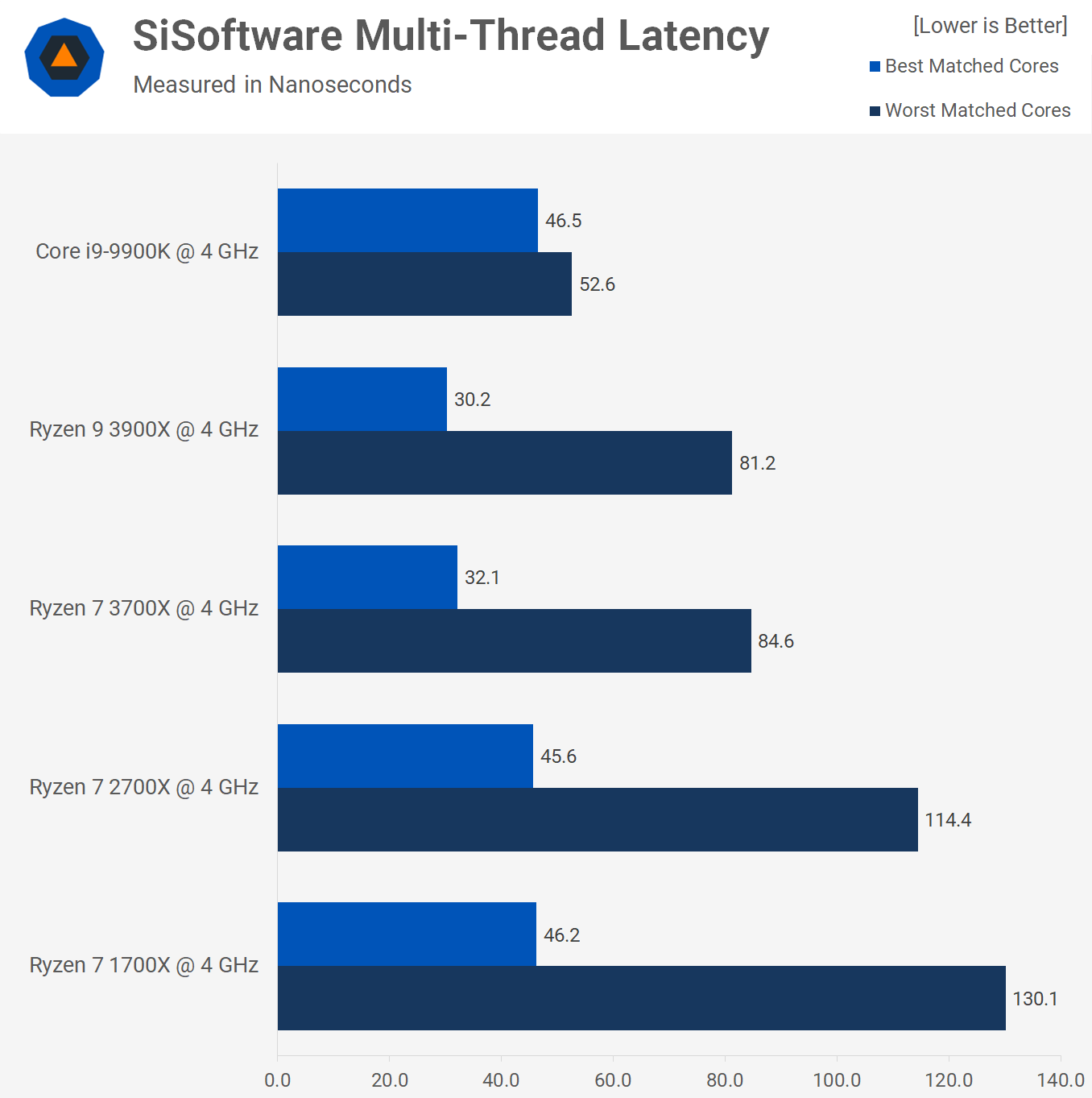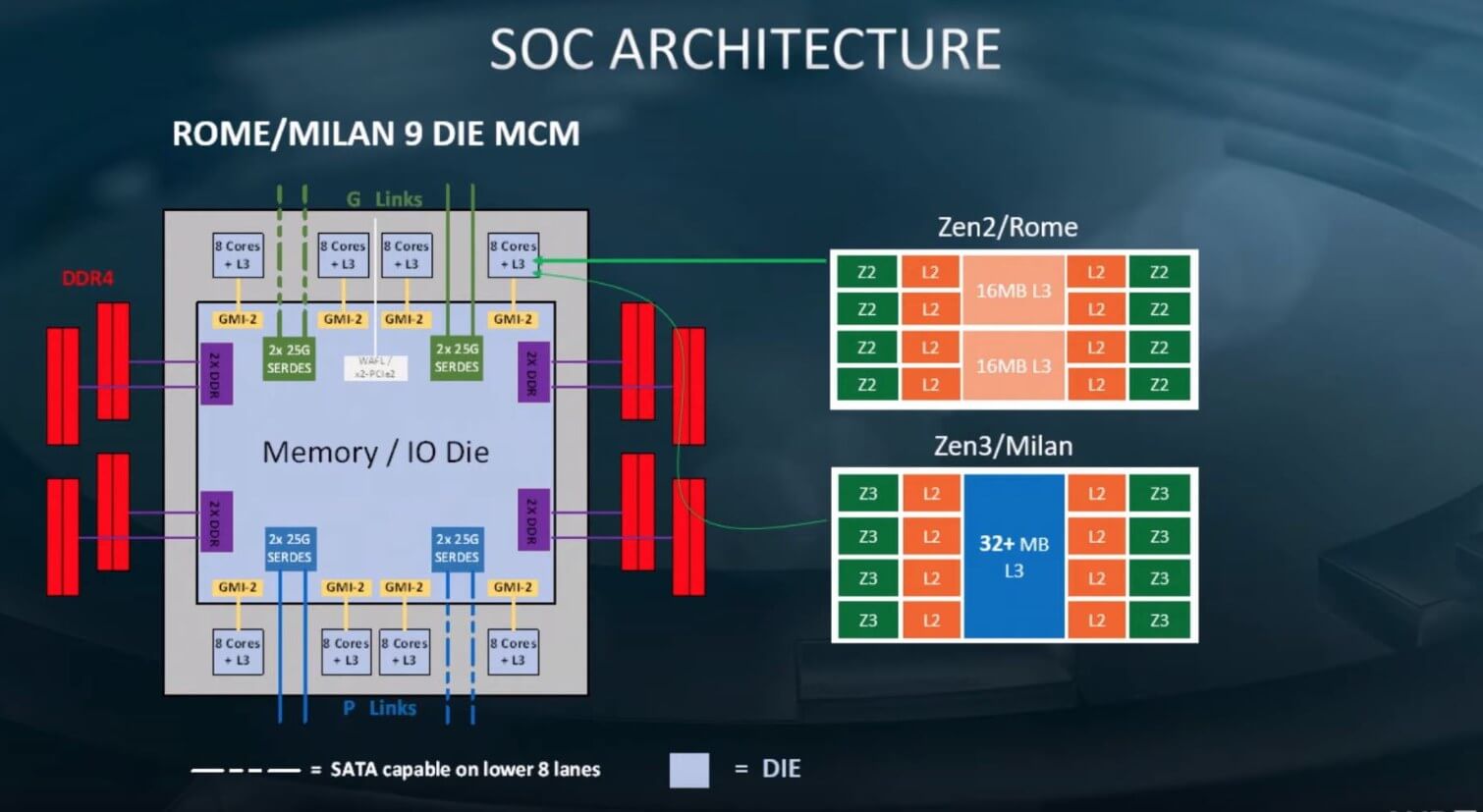Something to look forward to: AMD declared war on Intel with the launch of Ryzen, forcing both companies to rapidly bring their respective strengths of core count and frequency as close to their immediate limits as possible. With Intel seemingly unable to squeeze past 5 GHz without developing a new node, and AMD waiting for software to catch up before adding more cores, the present battleground is in IPC (instructions per clock). And Zen 3 is reported to be doing admirably thus far, with improvements approaching 20%.

As AMD confirmed at the HPC-AI Advisory Council UK conference, their next-generation server architecture, Milan, is being tested by their biggest customers. Milan and Ryzen 4000 will share the same Zen 3 architecture and TSMC’s 7nm+ EUV process, meaning that most we hear about Milan applies to 2020’s Ryzen, too.
According to Red Gaming Tech and Bits n' Chips, a multitude of AMD’s customers have tested Zen 3 and all say the same thing. The new architecture’s redesigned floating-point units have increased IPC in scientific tasks by something close to 50%, while integer work has seen a 10-12% boost. The combination of the two has resulted in a ~17% or greater IPC increase in mixed workloads.
Zen 3 will deliver performance gains "right in line with what you would expect from an entirely new architecture."
- AMD executive Forrest Norrod told The Street
A few leaked AMD slides, confirmed and elaborated upon by industry sources, explain how these IPC improvements have come about. Unlike the jump from Zen+ to Zen 2, which merged two quad-core CCXs (core complex) into one octa-core CCD (core complex die), Zen 3 is reported to have unified octa-core CCDs. This does two things, theoretically: radically reduces the average inter-core communication latency and increases the amount of L3 cache each core has available to it.
Having a unified octa-core CCD is very powerful. In our 4 GHz comparison, we found best-matched threads in the 9900K to have 46.5 ns of communication latency and the worst to have 52.6 ns. The 3700X, with two CCXs, had a best result of 30.2 ns and a worst result of 84.6 ns. That means that in applications with minimal inter-thread communication like Cinebench, Zen 2 can beat Intel, but in communication heavy applications like games, Intel has the advantage.
The rumored Zen 3 octa-core CCD design flips that on its head and could take away Intel’s latency advantage in games. Testing has shown that Zen 3 apparently has "significantly enhanced" latency across the chip. I doubt many Milan server CPUs have been tested with games, but when consumer Zen 3 does arrive, the IPC increase in games could be more than what we're hearing about currently.

Reworking the CCD designs requires the cache to be reworked, too. In Zen 2 each CCD has 32 MB of L3 cache, but it’s split into two discrete 16 MB packages, one for each CCX. With a unified CCD design, the full 32 MB becomes available to all eight cores at high speeds. AMD’s slides confirm this, but also suggest that there may be more than 32 MB per CCD. According to Bits n’ Chips, there may be an increase of "at least" 50%, but we’ll have to see if this applies to server versions of the chip only.
Industry sources have also hinted that the L3 cache could get a 40% increase in bandwidth. AMD finally matched Intel on L3 bandwidth with Zen 2, so pushing past them could put Intel on the backfoot there, too.

Apart from IPC, there might not be many other changes with Zen 3. Core counts are expected to stay the same, for a few good reasons; the market isn’t ready, AM4 can’t support more, the software is still trying to catch up, etc. Clock speeds on the server chips have apparently increased by 100 MHz to 200 MHz, but AMD has already pushed their clocks aggressively with Zen 2, so we wouldn’t expect much there.
TSMC is upgrading AMD to the 7nm+ EUV node, and node changes offer its advantages. While the boost clocks on the new chips might not improve much, the base clocks might. With the introduction of EUV (extreme ultraviolet lithography), yields should give AMD further breathing room on pricing. Of course, this is all theoretical as AMD is months away from deciding on prices.
Which perhaps brings us to the most important point: Zen 3 is technically complete, but we’re still anywhere from 6 to 12 months away from launch. Even if everything we suspect now is correct, it could all change by the time Ryzen 4000 series CPUs are released.
https://www.techspot.com/news/83347-zen-3-rumored-flaunting-monumental-ipc-gains-early.html